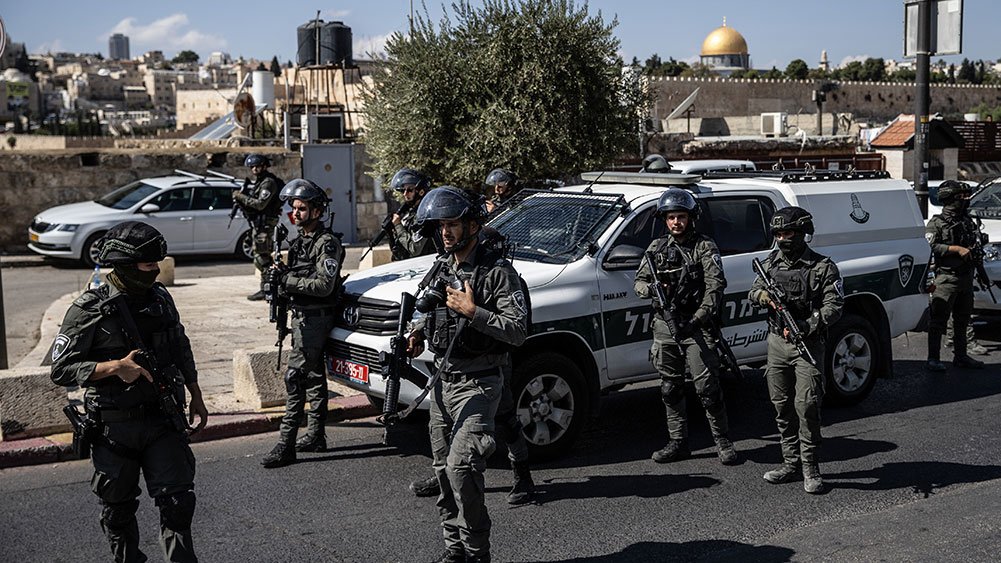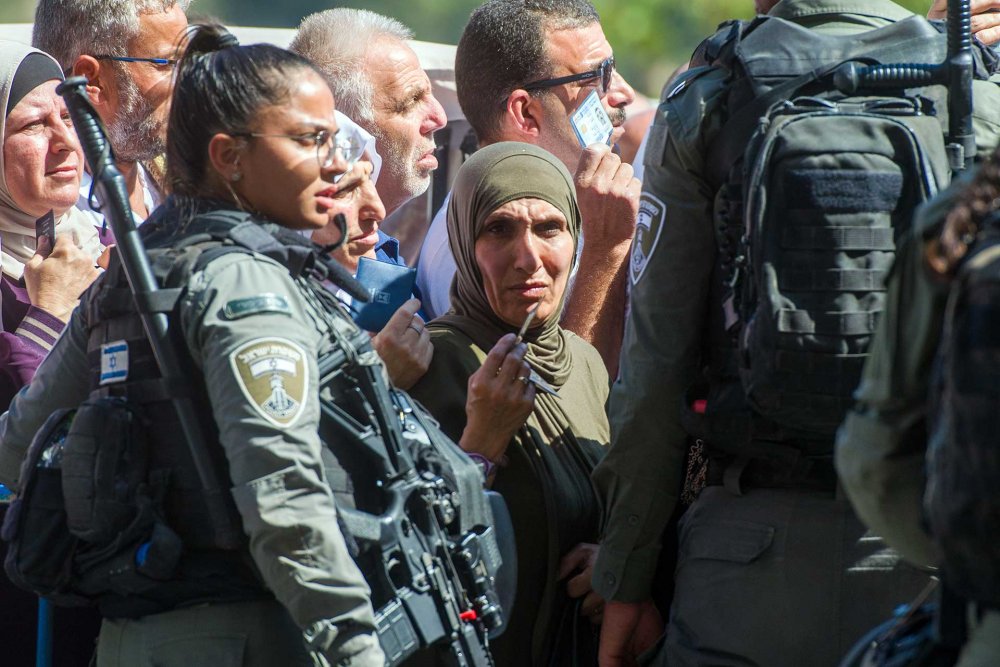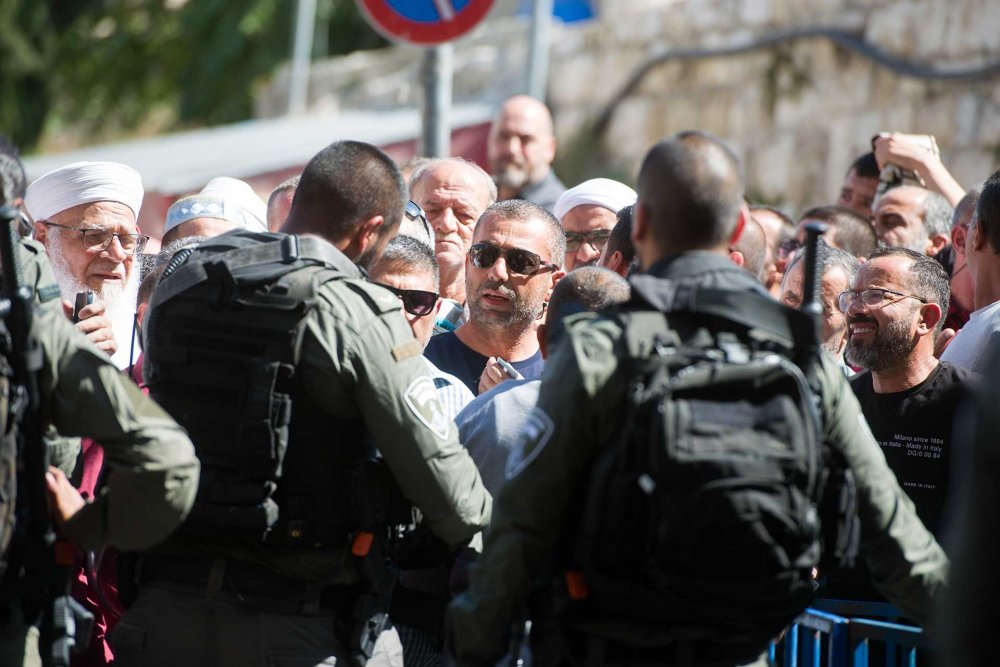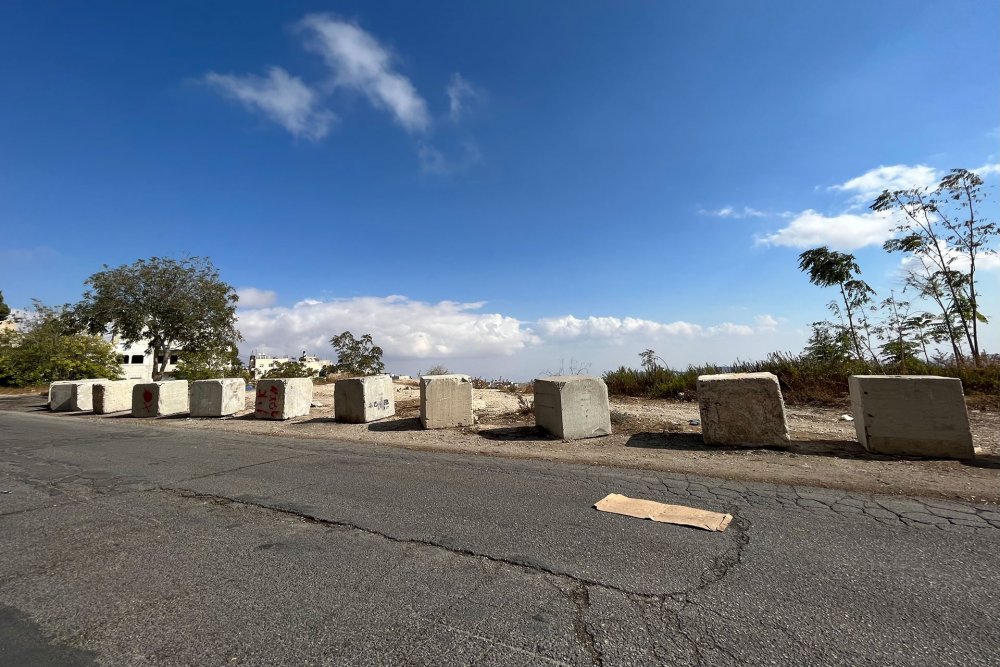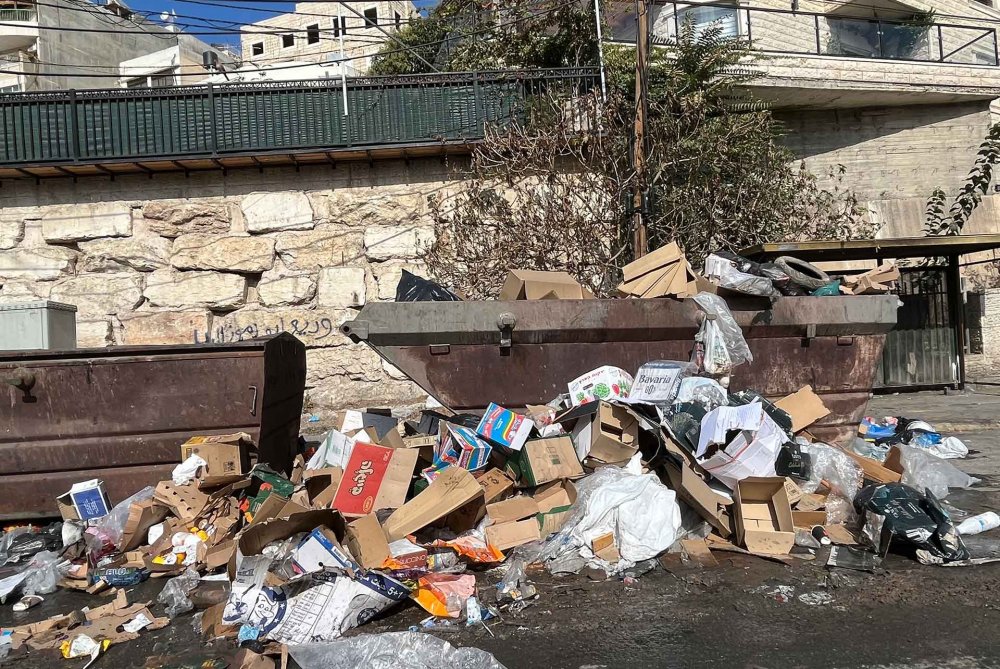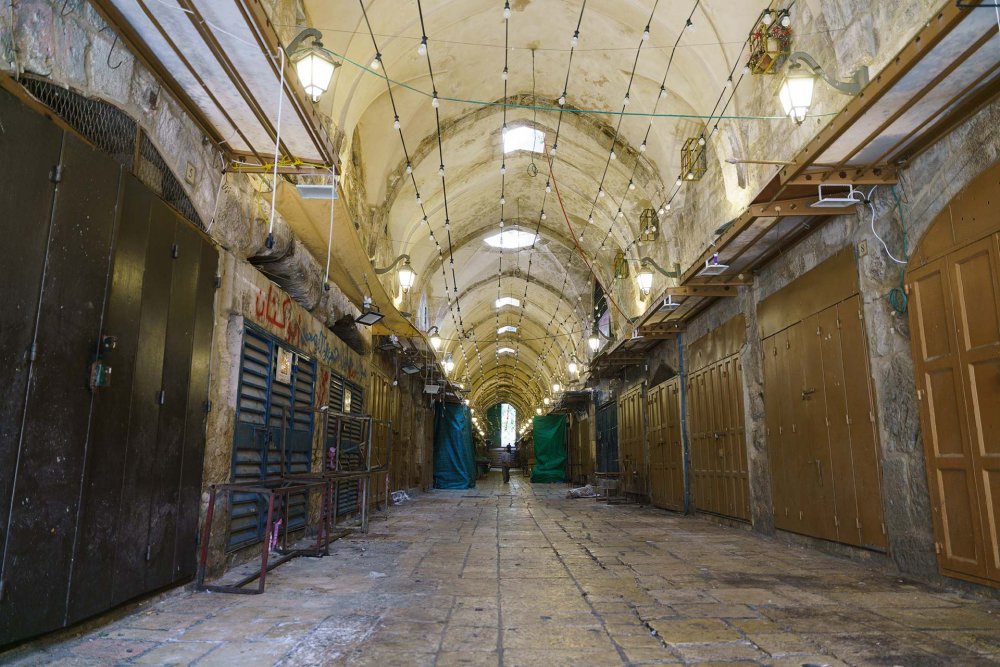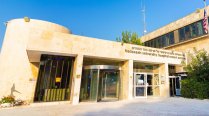For Abu Tareq, 72, a Palestinian from the Old City of Jerusalem, the conditions that the city is experiencing these days are unprecedented. There are no people in the streets, no transportation, and no open stores. Israeli police are deployed everywhere in Jerusalem and wielding excessive force.
Abu Tareq told Jerusalem Story, “I was returning to my home in Bab Khan al-Zeit, and at Bab al-Amud, a large force of police stopped three young men and asked for their ID cards. After checking the cards, they asked them to pull down their pants to check if they were hiding anything. I tried to intervene, but one of the young men asked me to move away so that I would not be harmed by the police.” Abu Tareq explained that the police were looking for a provocation and they used my attempted intervention to start beating up this young man for no reason other than because he spoke to me. Abu Tareq would not take this without doing something. “I told the policeman in charge that this was not legal. “What are you doing to young men who did not do anything?” The policeman in charge replied, “I am the law. Here, we are at war!”1

